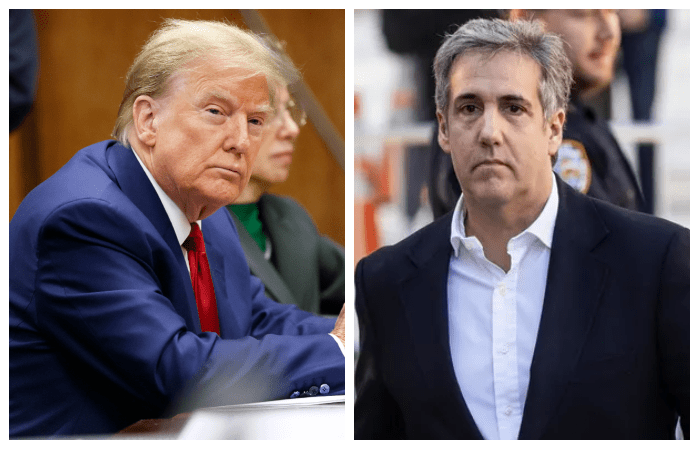On Monday, the Supreme Court denied disbarred lawyer Michael Cohen’s final attempt to revive a civil rights claim against his former boss, Donald Trump. The justices upheld lower court rulings that stated Cohen could not proceed with his allegation that then-President Trump and other officials violated his rights by placing him in solitary confinement for writing a tell-all book. In 2020, Cohen was serving a three-year sentence for various charges related to his work for Trump, NBC News reported.
He had been placed under home confinement due to the Covid-19 pandemic but was ordered back to prison after he refused to sign a form that would have prohibited him from speaking to the press or posting on social media. After spending 16 days in solitary confinement, a federal judge ordered Cohen’s release, ruling that officials had retaliated against him for exercising his free speech rights. Cohen subsequently sued Trump and other officials, seeking damages for the alleged violation of his Fourth Amendment right to be free from unreasonable search and seizure, among other claims.
He recently told NBC News that if Trump is elected to a second term in November, he “won’t stop with just locking people up” unless there is a significant deterrent in place. However, constitutional claims against individual federal officials are notoriously challenging to pursue due to a series of Supreme Court rulings, NBC News noted.
In recent years, the court has made it nearly impossible to bring constitutional claims against individual federal officials, effectively rolling back the 1971 precedent established in Bivens v. Six Unknown Named Agents of the Federal Bureau of Narcotics, which first permitted such claims. In the 2022 case Egbert v. Boule, the Supreme Court essentially placed “Bivens claims” on life support by dismissing allegations against a Border Patrol agent.
As reported by NBC News last year, the Egbert ruling has been cited hundreds of times by lower court judges when dismissing Bivens claims in cases involving a wide range of allegedly unconstitutional conduct. Both a federal judge in New York and the 2nd Circuit U.S. Court of Appeals referenced the Supreme Court’s recent ruling when rejecting Cohen’s claims. Unless Congress enacts legislation to allow a form of Bivens claims, there are limited legal options for seeking accountability when federal officials, including numerous law enforcement personnel, engage in unlawful acts, NBC said.



